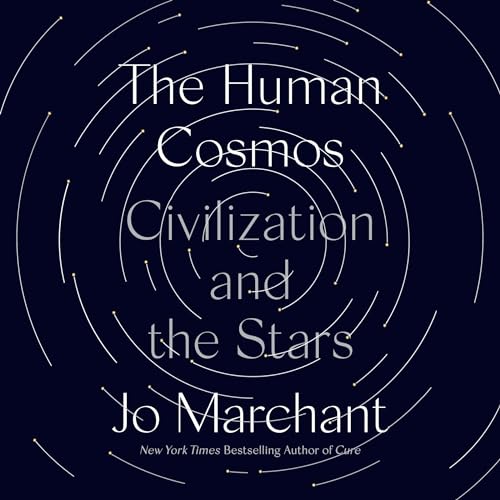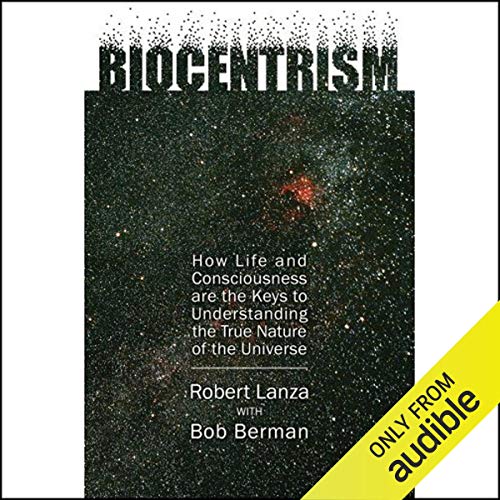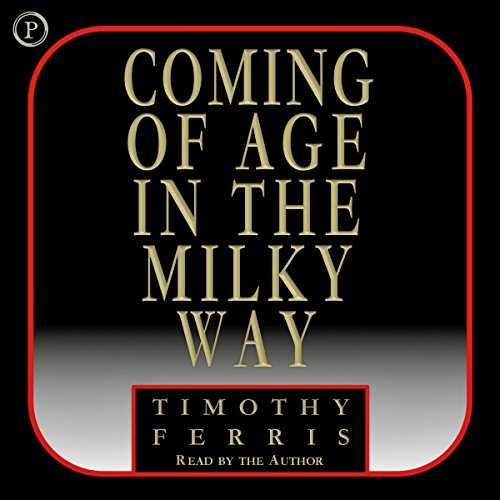
 Audible sample
Audible sample  Playing...
Playing... 
 Paused
Paused  Your audiobook is waiting!
Your audiobook is waiting!
Enjoy a free trial on us
$0.00$0.00
- Click above for unlimited listening to select audiobooks, Audible Originals, and podcasts.
- One credit a month to pick any title from our entire premium selection — yours to keep (you'll use your first credit now).
- You will get an email reminder before your trial ends.
- $14.95$14.95 a month after 30 days. Cancel online anytime.
Buy
-13% $12.52$12.52
Probable Impossibilities: Musings on Beginnings and Endings
 Audible Audiobook
– Unabridged
Audible Audiobook
– Unabridged
The acclaimed author of Einstein’s Dreams tackles "big questions like the origin of the universe and the nature of consciousness...in an entertaining and easily digestible way” (Wall Street Journal) with a collection of meditative essays on the possibilities - and impossibilities - of nothingness and infinity, and how our place in the cosmos falls somewhere in between.
Can space be divided into smaller and smaller units, ad infinitum? Does space extend to larger and larger regions, on and on to infinity? Is consciousness reducible to the material brain and its neurons? What was the origin of life, and can biologists create life from scratch in the lab?
Physicist and novelist Alan Lightman, whom The Washington Post has called “the poet laureate of science writers”, explores these questions and more - from the anatomy of a smile to the capriciousness of memory to the specialness of life in the universe to what came before the Big Bang.
Probable Impossibilities is a deeply engaged consideration of what we know of the universe, of life and the mind, and of things vastly larger and smaller than ourselves.
- Listening Length5 hours and 45 minutes
- Audible release dateFebruary 9, 2021
- LanguageEnglish
- ASINB08BG6K7DQ
- VersionUnabridged
- Program TypeAudiobook
 Read & Listen
Read & Listen
Get the Audible audiobook for the reduced price of $11.99 after you buy the Kindle book.
People who viewed this also viewed
- Audible Audiobook
- Audible Audiobook
- Audible Audiobook
- Audible Audiobook
- Audible Audiobook
People who bought this also bought
- Audible Audiobook
- Audible Audiobook
- Audible Audiobook
- Audible Audiobook
- Audible Audiobook
Related to this topic
- Audible Audiobook
- Audible Audiobook
- Audible Audiobook
- Audible Audiobook
- Audible Audiobook
Product details
| Listening Length | 5 hours and 45 minutes |
|---|---|
| Author | Alan Lightman |
| Narrator | Christopher Grove |
| Whispersync for Voice | Ready |
| Audible.com Release Date | February 09, 2021 |
| Publisher | Random House Audio |
| Program Type | Audiobook |
| Version | Unabridged |
| Language | English |
| ASIN | B08BG6K7DQ |
| Best Sellers Rank | #45,855 in Audible Books & Originals (See Top 100 in Audible Books & Originals) #62 in History of Science #80 in Science Essays & Commentary (Books) #135 in Physics (Audible Books & Originals) |
Customer reviews
Customer Reviews, including Product Star Ratings help customers to learn more about the product and decide whether it is the right product for them.
To calculate the overall star rating and percentage breakdown by star, we don’t use a simple average. Instead, our system considers things like how recent a review is and if the reviewer bought the item on Amazon. It also analyzed reviews to verify trustworthiness.
Learn more how customers reviews work on Amazon-
Top reviews
Top reviews from the United States
There was a problem filtering reviews right now. Please try again later.
We both spent an excessive amount of our lives in and around Caltech. Mine between and among Caltech and the combined scientific communities and disciplines brought together under Jet Propulsion Labs projects just down the I-210 from where Lightman may have resided.
I share 80% of Lightman's reflections and experiences. I do enjoy revisiting the domains of incomprehensibly large and small. It's a beauty best left inconceivable. Lightman's observation and a book meme that humans are positioned between nominally comprehensible powers of ±30 between atom and sun is an interesting metaphor. But let's be frank, man straddles the quantum, vastly smaller than the relative scale of the atomic and the universe, not simply our measly solar class.
Alas, the gap is at least twice again the powers of vast large and small. Light from the universe hasn't yet reached us from 14-some B years ago. The universe will get larger in millions of years at the speed of c. Then again, I've not seen a better elucidation in layman's terms of vast than Lightman delivers. Kudo's to Lightman
Lightman harkens back to Pascal frequently through the narrative. I imagined that Lightman might go the distance and embrace the scientific/philosophical Pascal universe. But, no. Lightman uses Pascal as a foil by the end. Lightman seems trite, announcing an error in Pascal's philosophy of science. His opinion. Many modern cosmologists won't mention Pascal for the reason. Lightman's universe is materialistic. That's shorthand for god-less. There is no room in Lightman's universe for another domain that many of us sense in our being.
My favorite aspect was Lightman's firm belief that the Plancks are solid and unchanging. Just what I've been saying for years! So, I agree with Lightman. However, Lightman explains that unchanging Plancks in some concept supports the end state of multi-verse and string theory.
Oppositely, I regard the Plancks unchanging existence as the very reason that multi-universe theories fail. However, all the propositions are untestable. No matter, multi-verse/string propositions 'yes/no' is moot in our existence. The propositions I've explored implicitly require the Plancks to metamorphose within the underlying mathematics to birth another universe. That's incomprehensible. Science rule #257: 'If it can't be imagined, even a tiny bit, on deep consideration, it can't exist. Oppositely, all that can be imagined could exist.' #257 has served me well.
Though nearby in location, Lightman and I circulated in different circles. Lightman believes that only a slight minority of cosmology brethren discern a God among the irrationals and transcendentals. I'd guess far more have quiet regard for the otherness saturating the gap between science and perception of other and, unfortunately, I believe they do so for job security reasons. No matter again, God appears unmoved by popularity polls. I once supposed that mathematicians might be the most materialistic among the sciences due to precision, but I decided I was wrong after a deep discussion among them. Mathematicians must imagine and consider the transfinite in high order mathematics … Ω, ω, אּ. More than 'shorthand', there is a mystery here in the philosophy of mathematics despite materialist counterarguments.
Lightman's godless universe feels incomplete. It's simply not satisfying. I liked it less and less as Lightman elucidates. Materialism answers none of the minds unique in all of known nature, human intuitions. "Is there more to it?" Lightman's search for proof of God will be fruitless. The transcendental nothingness of Buddhism is no shelter. 100-and-some-thousand Hindu gods are no help. No man can find God. God finds men, and men believe. It is an irresistible call. It's not a mystery at all.
From 'Probable Impossibilities,' "Spirituality does not require belief in miracles." Except that it does.
I'd happily recommend this book to friends who have a less scientific background than mine. Most of the scientific technicalities are explained very clearly.
Alas, the writing style troubles me a little. As with so many books I read these days, the author is far too keen to insert himself (and his family) into the story. Put simply, there are far too many first-person singular pronouns. Perhaps this is a standard feature of 21st century authorship, and I am simply an antediluvian has-been who can't appreciate the merits of this. But, whilst I feel a touch mean in doing so, I'm holding back the fifth star for this reason.


















